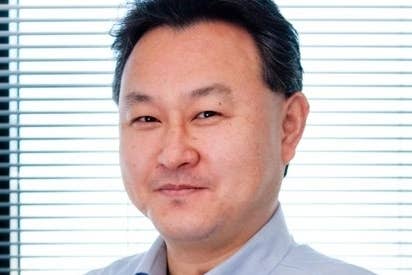Sony: "Retail will still play a key role" despite booming digital business
With Gaikai and digital downloads PS4 will be a very digitally-focused platform, but Shuhei Yoshida doesn't dismiss retail
In a special roundtable with Sony Worldwide Studios president Shuhei Yoshida the morning after his company officially unveiled the PS4, the executive made it clear that digital - whether downloads or the cloud - represents the future of the PlayStation business, but for now retail cannot be ignored.
Responding to a question asked by GamesIndustry International, Yoshida acknowledged that "digital is the fastest growing business for us and for industry as well." He noted that Sony's been seeing record digital sales every month. Currently, the company sees higher digital sales on Vita than PS3, he said, because all the content is available digitally on Vita. This is a trend that he does see extending to the PS4 in time, as more and more business from both Sony and third parties will be done digitally on the new console.
That said, Yoshida did not want to diminish the importance of retail to the PlayStation ecosystem. Apart from the obvious fact that retail will sell the PS4 hardware and accessories, there is still a segment of consumers who enjoys buying the physical disc, and retail helps to spread awareness as well to educate some consumers on the products, he said.
"We believe retail will still play a key role to get games in front of people," Yoshida commented. He noted that some consumers gain information from store employees who are knowledgable about some of the games, and he also pointed out that retailers are getting more aggressive in selling digital content themselves. Ultimately, the retailers will shift their business to meet consumers' needs, he said.
Elsewhere in the roundtable, after apologizing that we couldn't see the hardware, Yoshida noted that the PS4 and the DualShock 4 are still undergoing some final tweaks, and he said that we should be able to get to experience the final product at E3. That product is one that could be quite expensive, possibly more than most consumers would like. We asked him how Sony might balance internal corporate pressures to meet shareholders' demands while simultaneously arriving at a price point that won't drive away consumers. It's a delicate balance.
"That's our job. We are not building a factory to make a custom chip this time around. That helps," he said, referring to the complex process it took to manufacture the Cell chip for PS3. Yoshida would not elaborate any further on price or when we might hear about an MSRP on the console.
Yoshida was also asked about the very idea of maintaining a console business itself. After all, if the ultimate goal is to use Gaikai and the PlayStation cloud to get all games on all devices with a screen and internet connection, then PlayStation becomes a sort of subscription service. "At that point we aren't selling hardware. Maybe we are selling controller," remarked Yoshida. "Are you suggesting Sony should get rid of its hardware business? That's a Kaz Hirai question," he continued, while adding that Hirai "has been quick to make drastic changes within Sony... compared to past Sony management."
Perhaps PlayStation will become a service in future, but for now Yoshida sees the hardware as a vital part of the business, enabling developers to bring the best games to market. By providing dedicated hardware, software and services all integrated into one platform, Sony "can provide something special for players. That's why we're making PS4," Yoshida stressed.
Part of the advantage of providing hardware is being able to offer features like remote play of PS4 games on PS Vita. This is something that Yoshida believes in strongly, to the point where he said he's asking all developers to make sure their titles not only work well on PS4 but also on Vita via remote play. Some developers can also add in Vita specific features like touch screen controls. "I'd like to see developers take advantage of the extra Vita functionality," he said.
Yoshida also responded to a question about the viability of dedicated consoles and handhelds in a market where tablets and phones are providing experiences for cheap or free. Does the less than stellar reception for Vita thus far or the meager 57,000 units Wii U sold in January portend bad things for PS4 and consoles in general? Yoshida doesn't think so.
"We have to provide consumers something really compelling," he said. "We don't believe in the idea that consoles won't sell as much anymore. In the end we have to provide games that consumers want to play." It's a demand and supply issue, he said. "If we don't provide something great, then people won't buy."
Yoshida acknowledged that PS4 might not be able to win over the mainstream consumers who are satisfied with games on phones or tablets. "Many people are happy just playing games on phones or tablets; they don't want to spend extra money on hardware or spend much money to buy games. For those people it's going to be very hard to convince them but there are many others willing to spend to get a great experience," he concluded.









